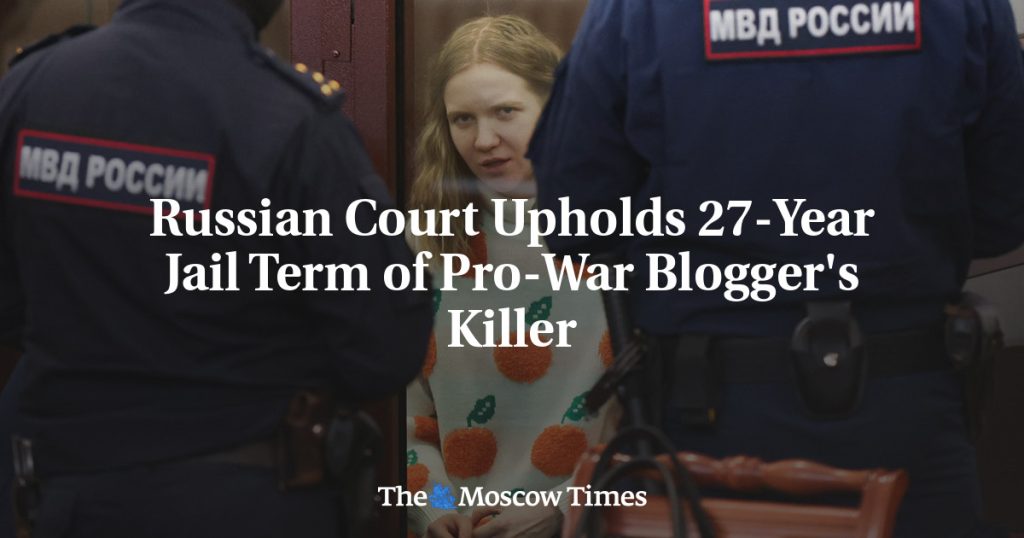A Moscow court upheld the 27-year jail sentence for Daria Trepova for the killing of prominent pro-war blogger Maxim Fomin, also known as Vladlen Tatarsky. Trepova gifted Tatarsky a golden bust of himself in April 2023, which contained an explosive device that killed Tatarsky and injured over 50 people. In January, she was sentenced to 27 years in prison for terrorism, illegal trafficking of explosive devices, and forgery. Prosecutors appealed the verdict, asking for an additional year to be added to her sentence, making it the longest-known sentence for a woman in modern Russian history.
During the appeal hearing, Trepova requested a reduction in her sentence and asked to be released after serving time in pre-trial detention. Her lawyer argued that the prosecution did not prove her guilt beyond a reasonable doubt and highlighted Trepova’s cooperation with investigators. Despite her plea, the Appellate Military Court in Moscow upheld Trepova’s sentence, refusing the prosecution’s appeal. Trepova appeared via video link at the hearing and expressed an apology to Tatarsky’s widow in court, acknowledging her actions and expressing regret.
The case of Daria Trepova’s sentencing for the killing of pro-war blogger Maxim Fomin has garnered significant attention. Trepova’s involvement in the murder, her sentencing to 27 years in prison, and the subsequent appeal have raised questions about justice and accountability in Russia’s legal system. Trepova’s actions, from gifting Tatarsky the explosive-laden bust to her cooperation with investigators, have been closely scrutinized, leading to a controversial and contentious legal battle.
The prosecution’s appeal to add an additional year to Trepova’s sentence indicates the severity of the crime and the consequences of her actions. The refusal of the court to reduce her sentence despite her plea for leniency highlights the strict application of justice in cases of terrorism and violence in Russia. The emotional apology made by Trepova to Tatarsky’s widow during the appeal hearing adds a personal and human aspect to the tragic events, emphasizing the impact of the crime on the victim’s family and the wider community.
The coverage of Daria Trepova’s case by news outlets like The Moscow Times reflects the importance of independent journalism in providing unbiased reporting on significant events. The media’s role in highlighting legal proceedings, court decisions, and public reactions to high-profile cases contributes to public awareness and understanding of complex legal issues. The support for independent journalism, particularly in challenging environments like Russia, is crucial for upholding principles of transparency, accountability, and freedom of expression.
The appeal for support from readers of The Moscow Times in the face of challenges to press freedom underscores the ongoing struggle for independent journalism in Russia. By encouraging readers to contribute to the cause of open and unbiased reporting, the publication emphasizes the value of diverse voices and perspectives in shaping public discourse and holding authorities accountable. The reminder to support independent journalism serves as a call to action for individuals to uphold the integrity of the media and promote democratic values in the face of censorship and suppression.


